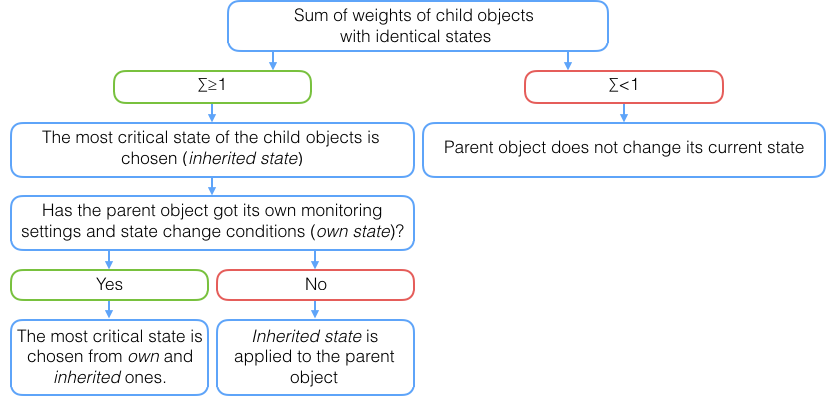States priority and propagation
State of a parent object can be changed depending on states of the child objects and links and weight coefficient of influence of these states.
Each object or link in the system has its weight. Weights of objects and links in the same state and with a mutual parent object are summed.
| Weight coefficient of influence can be set for objects and links in the section Parameters - General. |
If this sum is less than 1, then this state is not passed to the parent.
If this sum is greater than or equal to 1, then this state can be passed to the parent.
If there are several such states (with weight, greater than or equal to 1), the most critical state according to their priority is passed to the parent.
If the parent object has its own probe, the state of the object will be the most critical of two states:
-
result of own probe;
-
inherited from child objects.
| The list of states and their priorities can be changed in the section States of the configuration window. |

Example
The child objects
-
SSH servicewith weight = 0.4, -
Saymon Agentwith weight = 0.7, -
RAMwith weight = 0.5,
have got WORKING state (priority 5),
The other child objects
-
CPUwith weight = 0.8, -
HDDwith weight = 0.7,
have changed their states to OVERLOADED (priority 6).
The sum of weights of child objects:
-
in the state WORKING is 1.6 (greater than or equal to 1),
-
in the state OVERLOADED is 1.5 (greater than or equal to 1).
Since the state OVERLOADED is more critical than the WORKING one, the parent object state is changed to OVERLOADED.

|
An object with manually changed state:
until the manual state is disabled. |